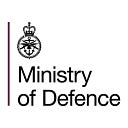My support to Mobile Testing Units
Lieutenant Chris Stock is providing support to the Thames Valley Local Resilience Forum (LRF) which is managing COVID-19 testing in the region
One of the reasons I joined the Royal Navy Reserves was to make a positive impact on society.
The ability to do this in the areas that I live was a big motivator. Knowing that I would have the support of my employer, my friends and family made it an easy decision.
I’m mobilised as a Military Planner into the Thames Valley Local Resilience Forum (LRF), reporting into 11 Infantry Brigade and Headquarters South East.
My current task is to provide planning support and guidance into the working group which is managing COVID-19 testing in the region.
Primarily I have been working on the site selection for mobile testing units, to ensure as many people as possible can access testing when they need it.
The first 24 hours was challenging. However, moral throughout the team was high and it was amazing to see how effectively the military, emergency services, and civilian employees can work together to solve significant challenges.
In my civilian role, I work at Brunel University London in their College of Health and Life Sciences as their Services Manager.
My role is to manage and develop the team and services which support the infrastructure and daily operations of the College including technicians — it’s a busy role, but the skills and training I receive in the military have helped me greatly.
Testing people for coronavirus is one of the means to ensure we keep our infection rate down and protect the NHS while keeping as many key and essential workers working.
The Thames Valley region is large and has many areas with high concentrations of key and essential workers, as well as many rural areas which make it difficult for people to get to their nearest regional testing centre (especially if you don’t own a vehicle or are too unwell to travel for a long round trip).
My work, along with my civilian and military colleagues allow us to respond flexibly when there is an area that needs testing.
A particular highlight for me was when I visited a Mobile Testing Unit (MTU) on the first day of mobile testing in the Thames Valley and saw the site was well used.
Seeing people being tested, who without the military’s involvement would most likely not have been, was a real motivator, and a visible output of the positive effect the military is having on the local society.
We’ve rapidly had to develop communication strategies to allow swift and effective transfer of information to ensure everyone is working successfully together.
Being able to rely on my military training, which has helped to build personal resilience when faced with challenges, was critical to ensuring the success of this mission.
To ensure we’re following the Government’s advice to protect the NHS, I’m trying to work from home as much as possible.
However, there is often a need to visit the mobile testing sites and to work from Thames Valley Police HQ (where the testing working group is centred).
I’ve been working with a fantastic group of civilians, as well as regular and reserve military personnel from all three Services.
I also never expected to be mobilised and to be working so closely with my civilian line manager, who has also been mobilised by the Army Reserves.
Given that I could have been mobilised anywhere, and so could he, and we’re in different Services the chances must have been quite small. However, it has been very useful and has meant that we have been able to work swiftly and efficiently from the get-go!
I’ve always had a fascination with the coast and the Royal Navy. I spent a lot of time when I was growing up in and around Dartmouth and seeing the Naval cadets training at the Britannia Royal Naval College made me want to do the same things.
After I’d completed 4 years of University study, I still wanted to join the Royal Navy, but also wanted to have a civilian career using my skills.
The reserves offered me the opportunity to have the best of both worlds and each has complimented each other very well.
So far, I have only been deployed in the UK (but the lochs around the West coast of Scotland, and the Cornish and Devon coastlines are still amazing places).
I was due to go to the Czech Republic for a NATO conference in March but the trip was cancelled and I was mobilised.
